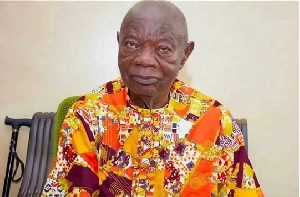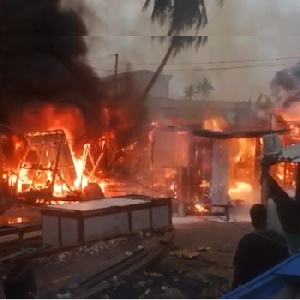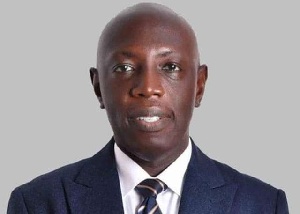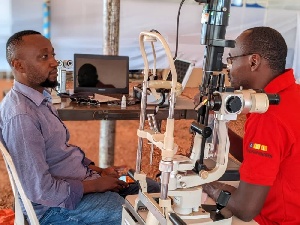- Home - News
- Elections 2024
- News Archive
- Crime & Punishment
- Politics
- Regional
- Editorial
- Health
- Ghanaians Abroad
- Tabloid
- Africa
- Religion
- Photo Archives
- Press Release
General News of Tuesday, 3 June 2025
Source: www.ghanawebbers.com
Ten Years On: June 3 disaster survivors share painful memories and call for civic responsibility
Today, June 3, marks ten years since a deadly disaster in Ghana. A fire and flood at Kwame Nkrumah Circle in Accra claimed over 150 lives.
The tragedy began after heavy rainfall caused severe flooding. Fuel leaked from the GOIL station and ignited, reportedly from a cigarette stub. This explosion worsened the chaos and destruction.
Survivors gathered on Joy FM’s Super Morning Show to share their memories. They recounted stories of terror, trauma, survival, and lasting pain.
Kafui Adzah, a survivor, struggled to hold back tears. She recalled that fateful night: “I never close early, but that day I did.” She picked up her daughter and walked home under an ominous sky. She called her friend Larry to say she was okay.
But safety was short-lived. Floodwaters soon invaded her home, trapping them inside. Panic set in as she reassured Larry until she had to cry for help. “I even posted on Facebook, but no one saw.”
Larry Dogbe risked his life to rescue Kafui and her daughter. He told her he would save them no matter what. “He was my angel, my hero,” Kafui said.
Akosua Ogyiri shared her experience while working at Charterhouse during the rain. They thought it would pass but soon water rushed into the reception area. The lights went out as darkness enveloped them.
Outside, flames lit up the night sky while they smelled fuel in the water. Emergency lines were down; they feared for their lives.
A military colleague eventually rescued Akosua and her coworkers. Though grateful for their safety, psychological scars remain. “We were lucky,” she said, “but the terror stays with us every day.”
Akosua criticized the apathy that follows national tragedies. “Our motivation often comes only from disaster,” she stated. People died and properties were lost before action was taken.
She emphasized that change should come from duty rather than disaster response. Everyone must do their part—keep drains clear and avoid dumping refuse anywhere.
“I expected clear policies after June 3,” Akosua added. She wanted actions everyone could point to for protecting lives.
Reflecting on her escape, Akosua realized how close she came to being a victim herself. “If I had left earlier that night,” she said, “I could have been swept away.”
The testimonies of Kafui and Akosua remind us of our civic responsibilities year-round. The June 3 disaster was not just a tragedy; it was a call to action.
As Akosua concluded, true motivation must come from responsibility—not just from disasters but also from a commitment to prevent them in the future.
Entertainment










